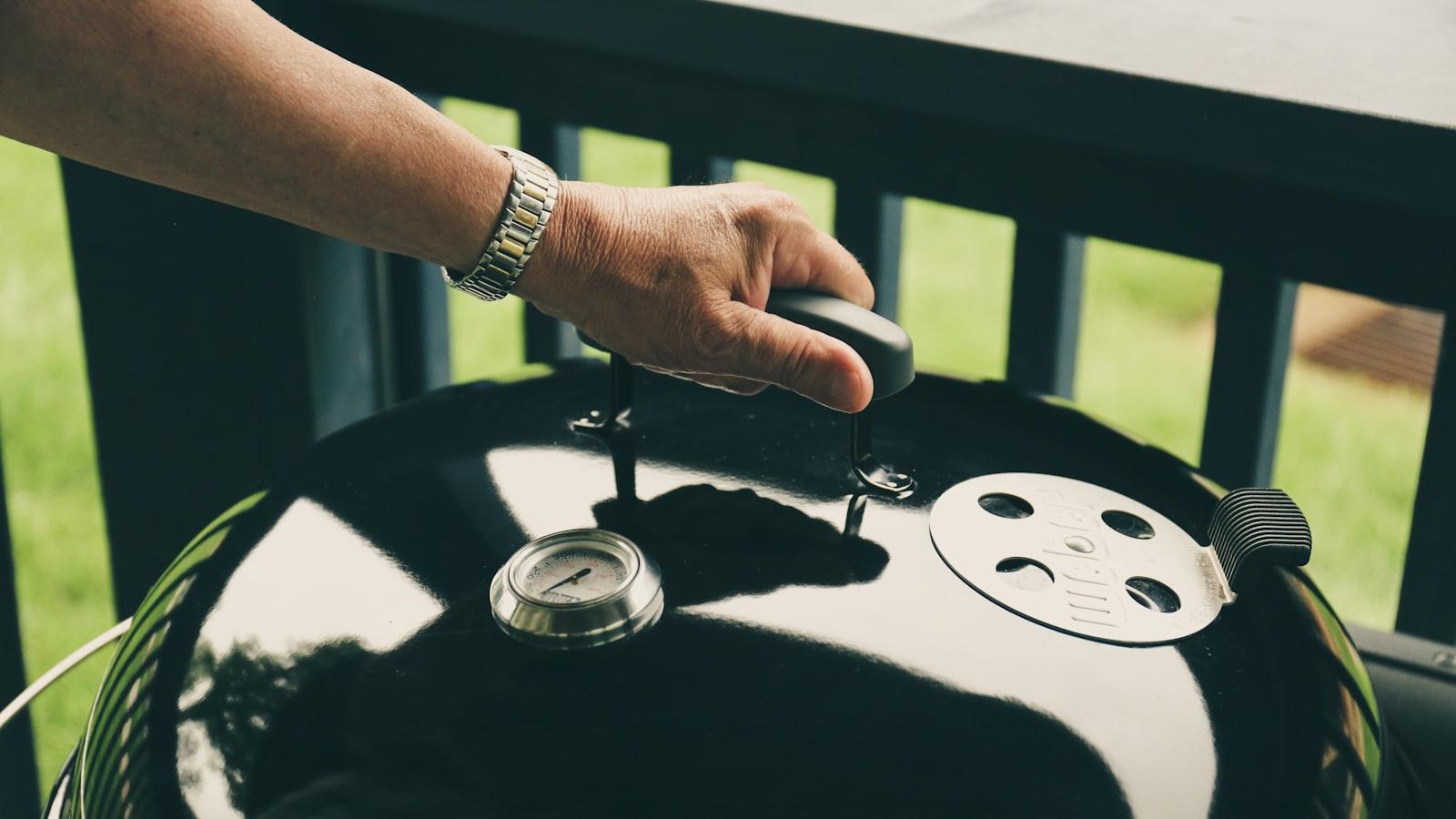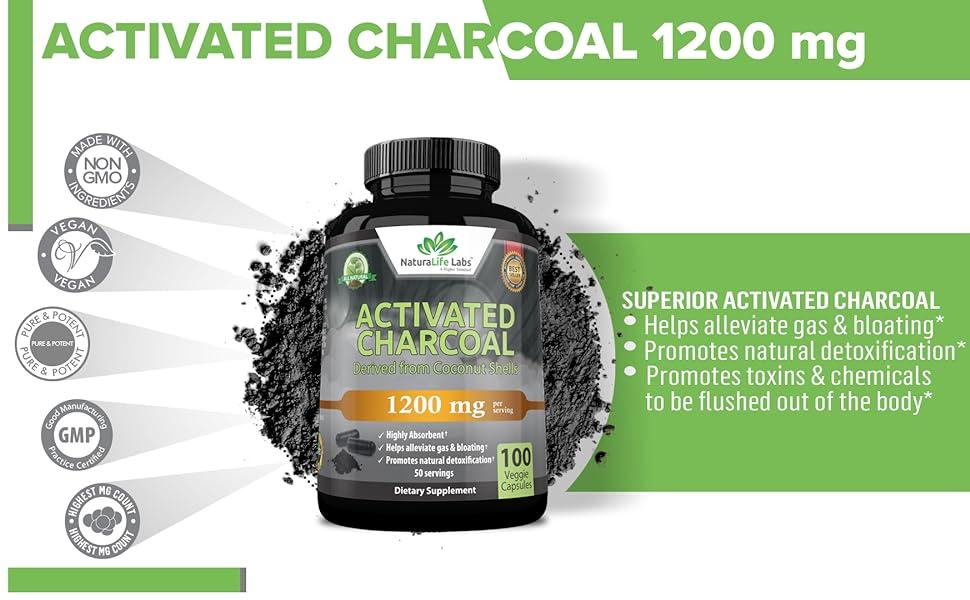In a world where wellness trends come and go quicker than a hiccup, there’s one charcoal-clad contender steadfastly holding its position as the reigning detox ingredient of the moment – activated charcoal. Embraced by health enthusiasts and social media gurus alike, this inky substance claims miraculous detoxifying powers that promise to cleanse your body like nothing else. But before you plunge headfirst into the charcoal-infused abyss, it’s time to separate fact from fiction, and delve into the murky depths of activated charcoal’s trendy reign. Are we truly unlocking the secret to a pure and cleansed existence, or is this just another fleeting fad with a monochrome twist? Let the investigation commence as we peel back the layers of activated charcoal’s fascinating allure, uncovering the truth behind its trendy detox reputation. Dim the lights, strap on your investigator’s hat, and prepare for an enlightening journey into the captivating world of activated charcoal.
The Hype Surrounding Activated Charcoal: Unveiling the Truth behind Its Detoxifying Claims
Activated charcoal has become a popular ingredient in the realm of detoxification, touted as a powerful remedy for eliminating toxins from the body. But does it live up to the hype? Let’s dig deeper and unveil the truth behind its detoxifying claims.
Firstly, activated charcoal is known for its unique ability to adsorb toxins. When ingested, it binds to harmful substances in the stomach and prevents their absorption into the bloodstream. This property has made it a go-to solution for emergency treatment of drug overdoses or poisoning. However, its effectiveness as a daily detoxifying agent is still a topic of debate among health experts.
- Activated charcoal may help alleviate gas and bloating: It is believed to trap gas molecules in the intestines and relieve discomfort. However, scientific evidence supporting this claim is limited, and individual results may vary.
- Activated charcoal may whiten teeth: It is found in many teeth-whitening products, claiming to remove stains and improve oral health. While it may have some superficial effects on surface stains, it is not a substitute for professional dental care and regular oral hygiene practices.
- Activated charcoal may aid in hangover prevention: Advocates suggest that taking activated charcoal before consuming alcohol can reduce hangover symptoms by absorbing toxins. However, this claim lacks substantial scientific evidence, and staying hydrated remains the key factor in preventing hangovers.
Overall, while activated charcoal shows promise in certain emergency situations, more research is needed to validate its efficacy as a daily detoxifying agent. As with any health trend, it’s essential to consult with healthcare professionals before incorporating it into your wellness routine. Remember, the truth behind its detoxifying claims is still a work in progress.

Unraveling the Science: How Does Activated Charcoal Work in Detoxification?
Activated charcoal has taken the wellness world by storm, with claims of its detoxifying properties and ability to cleanse the body of harmful substances. But how does it actually work? Let’s unravel the science behind this trendy detox ingredient to determine whether it’s fact or fiction.
The Adsorption Effect: A Powerful Purifier
At the core of activated charcoal’s detoxifying prowess lies its unique ability to adsorb various substances. Unlike absorption, where substances are taken up by another medium, adsorption refers to the adhesion of molecules to the surface of a material. Activated charcoal has a highly porous structure that enhances its adsorption capabilities, allowing it to attract and trap toxins, chemicals, and impurities.
When ingested, activated charcoal passes through the digestive tract, where its porous surface acts as a magnet for harmful substances. Toxins and unwanted compounds in the intestines, such as heavy metals and pesticides, bind to the charcoal’s surface, preventing their absorption into the bloodstream. This adsorption process effectively removes these toxins from the body, supporting overall detoxification.
Benefits and Limitations of Activated Charcoal
The detoxification potential of activated charcoal extends beyond just internal use. It has been widely used topically in skincare products to draw out impurities, combat acne, and improve skin clarity. Additionally, medical professionals often employ it in emergency situations to treat drug overdoses or poisonings due to its ability to bind to drugs and prevent their absorption.
Despite its undeniable benefits, activated charcoal is not without limitations. It’s important to note that activated charcoal cannot specifically target certain toxins or differentiate between harmful substances and essential nutrients. Therefore, its indiscriminate adsorption can also lead to the loss of beneficial minerals and vitamins if taken excessively. It’s crucial to consider individual needs, consult with healthcare professionals, and follow recommended dosage guidelines when considering activated charcoal as a detoxification aid.

Separating Fact from Fiction: Examining the Effectiveness of Activated Charcoal as a Detox Ingredient
Activated charcoal has gained significant popularity as a detox ingredient in recent years, with many claiming it has miraculous effects on the body. But how much of this is fact and how much is fiction? Let’s examine the effectiveness of activated charcoal as a detox ingredient and separate the truth from the hype.
First off, it’s important to understand what activated charcoal is and how it works. This form of charcoal is specially processed to have a porous structure, which gives it a large surface area and makes it highly adsorbent. When ingested, activated charcoal binds to certain substances in the digestive system, preventing their absorption into the bloodstream.
- Activated charcoal as a detox ingredient: Proponents of activated charcoal claim that it can effectively detoxify the body by binding to toxins and chemicals, removing them from the system. While there is evidence to suggest that activated charcoal can adsorb certain substances, such as certain drugs and chemicals, it is important to note that it is not selective in what it binds to. This means that it may also bind to beneficial substances, such as vitamins and minerals, potentially reducing their absorption.
- The limited evidence: While there are some studies that support the use of activated charcoal for specific purposes, such as in cases of drug overdose or poisoning, the evidence for its effectiveness as a general detox ingredient is limited. Many of the claims surrounding activated charcoal’s detoxifying abilities are based on anecdotal evidence or personal testimonials, rather than rigorous scientific studies.

Expert Recommendations: When and How to Safely Use Activated Charcoal for Detoxification
In recent years, activated charcoal has emerged as a popular ingredient in the world of detoxification. But is it truly effective, or just another passing trend? Let’s explore the expert recommendations on when and how to safely use activated charcoal for detoxification.
1. Timing is key:
- Activated charcoal is best utilized when used within a few hours of toxin ingestion, such as accidental poisonings or drug overdoses.
- Using it as a daily detox method may not be as effective since it can also bind to essential nutrients in your body.
- Consult a healthcare professional for specific timing guidelines based on your needs.
2. Safety precautions:
- Always use activated charcoal under the guidance of a healthcare professional.
- Ensure you are using a high-quality, food-grade activated charcoal product.
- Avoid using it if you have an obstruction in your intestinal tract or any medical condition that affects the digestive system.
- It is also important to note that activated charcoal is not a replacement for emergency medical treatment.
| Situation | Use of Activated Charcoal |
| Food Poisoning | May help absorb toxins and reduce symptoms. |
| Alcohol Overconsumption | Activated charcoal may not be effective in reducing alcohol levels in the blood. |
| Medication Overdose | Activated charcoal can be beneficial, but immediate medical help should be sought. |
While activated charcoal may have its benefits in certain situations, it is crucial to remember that its effectiveness may vary depending on the context. Whether it’s a trendy detox ingredient or a proven detoxification method, it’s always wise to consult with experts before incorporating any new practices into your health routine.
Wrapping Up
In the universe of wellness trends and detox fads, activated charcoal has emerged as a flamboyant star, captivating health enthusiasts and skeptics alike. With its striking black hue and promises of detoxification, it’s no wonder that this enigmatic ingredient claims the spotlight in various forms – from toothpaste and face masks to smoothies and even ice cream. But, amidst the glitz and glamour, is activated charcoal truly the panacea it proclaims to be, or is it just another fleeting trend that will dissolve into thin air? Unveiling the truth behind the hype, we delved into the science and facts, unswayed by the mesmerizing allure of this unconventional detox ingredient.
As the curtains draw on our exploration, a melange of evidence and conjecture paint a complex picture. Activated charcoal’s alleged detoxifying properties seem to teeter on the precipice of fact and fiction. Indeed, this porous substance has shown its mettle in certain scenarios, effectively adsorbing toxins and chemical substances in emergency situations. It is lauded for treating specific cases of poisoning or overdose, playing a crucial role in medical interventions. Yet, when exposed to the unforgiving glare of scrutiny, the sweeping claims about activated charcoal’s daily detox benefits fall short.
In truth, while activated charcoal may exert its power as a powerful toxin-binding agent, its effectiveness as a routine detoxifying elixir remains mired in controversy. Scientific research reveals a lack of substantial evidence to support the broad range of detox claims, such as purging heavy metals, cleansing internal systems, or miraculously curing hangovers. The limited published studies often demonstrate ambiguous results, leaving us yearning for more comprehensive research to definitively validate or debunk this enigma.
Nonetheless, the allure of activated charcoal remains perplexing as its popularity continues to soar. Many swear by its anecdotal effects, touting radiant skin, improved digestion, and an overall sense of well-being. Yet, it is imperative to temper our enthusiasm and adopt a discerning approach. Our bodies are magnificently complex, capable of their detoxification processes without relying solely on the seductive appeal of a trendy ingredient. Before plunging headlong into the vibrant world of activated charcoal, we must navigate with caution, ensuring our actions are rooted in current scientific understanding.
In this grand finale, the verdict remains nebulous, the mysteries of activated charcoal persist, and the curtain falls on this chapter of wellness wizardry. As new trends rise and fall, we urge the Wellnessseeker to weigh the evidence carefully, consult the experts, and embark on personal health journeys grounded in critical thinking. And remember, while activated charcoal may tantalize our senses and tickle our curiosity, the true key to well-being lies in a balanced lifestyle, nourishing food, and evidence-based practices. As the final curtain falls, let us bid adieu to the intoxicating allure of trendy detox ingredients, and welcome a new era of informed wellness.


